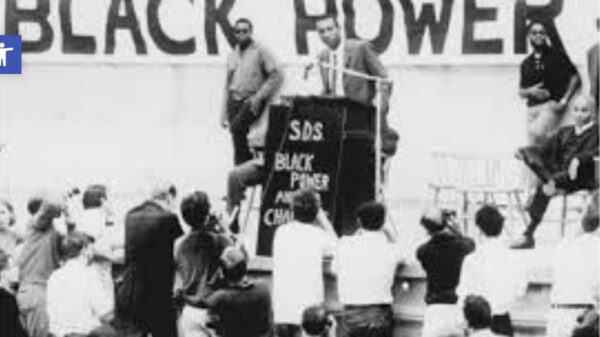
By Ke’Aun Charles
The neocolonial French empire in Africa is crumbling. Across the Sahel anti-French military coups have overthrown their pro-Paris predecessors. Along the coast, protests against the French-backed CFA currencies and strongmen have rocked countries such as Togo. In country after country, France is in retreat, and players like China and Russia are entering the breach.
In this environment the U.S. is at a disadvantage. Both China and Russia can point to their histories as anti-colonial fighters in the Cold War. Both countries can claim to be victims of Western greed and brutality, same as many in Africa. The U.S., however, cannot claim such a heritage in the continent. Indeed, America has often backed Europeans in their attempts to hang on in Africa. America backed the Portuguese in their colonial wars, backed the Apartheid regime in South Africa, and, today, has – perhaps unwittingly – backed a pro-French government in Niger. The crumbling of that government and strong anti-French turn of the new regime now risks tainting America’s efforts in the region through “guilt by association.”
For far too long, the U.S. has backed a decaying European order in Africa. In doing so, Washington has not only opened itself up to justifiably harsh criticism about its intentions on the continent, but has in practically all of these cases ended up backing the losing horse, harming its interests in an increasingly important part of the world. America’s actions in Niger could be seen as an intervention in France’s failed Operation Barkhane, an attempt to latch on to French capacity in the country. This, as is now clear, was a grave error.
If America plans to take Africa seriously, and be taken seriously by Africa, America needs to stop leaning on European countries in the region and develop its own capacity to fulfill its own interests. Joint efforts with the Europeans in this part of the world are questionable, both because European influence is clearly in retreat across the continent, and because Africans themselves are clearly wary of European efforts. France, especially, appears to be a poor partner in the region – so despised is its influence in Africa that even other European leaders have taken Paris to task over it.
America has its own advantages – a huge internal market, a large African diaspora, and so on – its own capacities, and its own interests, that it could lean on without having to tie itself to sinking European ships. It’s time for America-Africa relations to stand on their own two feet, without the Françafrique crutch.
Ke’Aun Charles writes on American, African, and African Diaspora politics from a pro-Black Power, pro-Liberal perspective. He is the author of “An Afrofuturist Manifesto: How Black Power Can Liberate America.” Ke’Aun currently lives in San Francisco.
The opinions on this page are those of the writers and not necessarily those of the AFRO. Send letters to The Afro-American • 233 E. Redwood Street Suite 600G
Baltimore, MD 21202 or fax to 1-877-570-9297 or e-mail to editor@afro.com









You must be logged in to post a comment Login